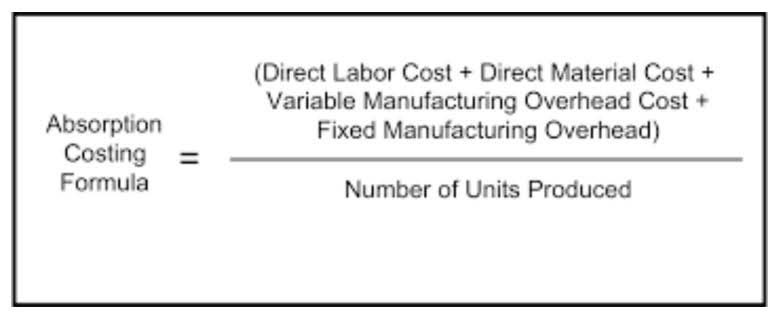
Artificial intelligence (AI) is no longer a futuristic concept; it’s here, and it’s transforming bookkeeping. Machine learning algorithms handle data entry, detect anomalies, and generate accurate forecasts. These tools reduce human error and save time, making them indispensable for 2025 bookkeeping. However, securing such skilled workers will require some effort as many professionals are assessing the personal risks of moving jobs in times of uncertainty. Of the 35% of companies struggling to hire finance talent, 32% cite finding skilled candidates as the top challenge. Nearly 75% of certified public accountants (CPAs) reached retirement age by 2020.

How do I start a career in bookkeeping?
A Bookkeeper tracks a business’s finances by generating different financial reports and analyzing data to ensure records are accurate and up to date. To combat this, organizations opted to hire finance professionals on a temporary basis instead, saving on time and budget. For companies that want sustainable solutions, first hiring a temp employee can serve as an effective trial period before transitioning them into a permanent position.
- Soft skills such as communication, problem-solving, and adaptability are increasingly important as the role evolves towards more advisory functions.
- This enables bookkeepers and financial professionals to make data-driven decisions promptly and accurately.
- These advancements can enable advanced financial forecasting, predictive analytics, and personalized insights, empowering bookkeepers to provide more valuable financial guidance to their clients or organizations.
- If you want more insights, the Michael Page 2025 Salary Guides contains the latest hiring trends and salaries for accountants and other finance professionals.
- Your actual earnings can vary based on where you work, your experience, and certifications.
- AI technology can process and analyze vast amounts of financial data with speed, accuracy, and efficiency that surpasses human capabilities.
What hard/technical skills are most important for Bookkeepers?

Implementing robust internal controls is another essential step in meeting changing legal requirements. Bookkeepers must establish and maintain procedures that ensure accurate financial record-keeping, Mental Health Billing proper documentation, and adherence to legal guidelines. This may involve implementing checks and balances, segregating duties, and implementing internal audit processes to detect and prevent errors or fraudulent activities. Moreover, compliance frameworks are evolving to address emerging risks and challenges. Bookkeepers must be aware of these frameworks and implement internal controls and procedures to ensure compliance with regulatory requirements.
What advice would you give to students considering becoming a bookkeeper?

Furthermore, outsourcing bookkeeping services provides financial transparency and stability to companies. Outsourcing these services allows employees in the company to focus on more pressing tasks, such as driving the company’s mission and goals. Leaning on automation can be a great idea and a big help to business owners looking to take their company to the next level.
- In 2025, businesses are increasingly seeking bookkeeping services tailored to their specific industries.
- The Live Expert Assisted plans come with QuickBooks expert one-on-one guidance and access to tax resources so you can manage your books on an ongoing basis.
- Consequently, the demand for service can be restricted by such factors that can pause the growth of the market.
- Staying adaptable and open to new opportunities helps thrive in this dynamic industry.
- This helps relieve an often tedious task and allows for more efficient accounting processes that require less manual work.
- Success comes from building the right mix of technical expertise and strategic thinking skills in this changing field.
BOOKKEEPING SERVICES MARKET SEGMENTATION

If your bookkeeping has fallen down the priority list in recent months (we get it!), a dedicated cleanup service will help ensure everything gets back on track. We rate QuickBooks Live for one-time cleanup bookkeeping, as your finances will be in top shape come tax filing season, when you’re ready to apply for a loan or looking for financial reports. You’ll want to look for an online bookkeeping service that will allow you to scale without repercussions. A service such as Bookkeeper360 starts its plans with a pay-as-you-go fee by the hour, which is great for companies just getting started. When your growth takes flight, you can easily upgrade your plan to meet your new needs. The most essential online bookkeeping features have to do with what you’ll get as part of your plan.
- Using cloud-based software, virtual bookkeepers reconcile bank accounts, manage payroll, create financial reports, update financial records, collect payments, record receipts, and more.
- Automation is crucial in green bookkeeping by streamlining repetitive tasks and reducing manual intervention.
- This may involve implementing checks and balances, segregating duties, and implementing internal audit processes to detect and prevent errors or fraudulent activities.
- Let’s explore why bookkeeping services are booming in 2025 and why now is the right time to invest in one.
- The bookkeeping profession faces a turning point in 2025, with mixed signals about its future.
- With automation handling transactional tasks, the role of bookkeepers is evolving from data entry and processing to more strategic and advisory functions.
Data-Driven Decisions
These qualifications showcase expertise and help secure better-paying roles. Accountants make a median annual salary of $81,680, significantly more than the $49,210 that bookkeepers earn. Bookkeepers who want to earn more can become accountants or auditors if they complete education requirements for CARES Act this career. Earning a bookkeeping certification can provide a good return on investment.
Building a Strong Online Presence
This shift towards mobile bookkeeping has transformed how businesses handle their financial operations, enabling greater accessibility, real-time updates, and improved efficiency. In this digital age, where mobile devices are ubiquitous, the ability to perform bookkeeping anytime, anywhere has become a crucial aspect of modern financial management. Integrating bookkeeping with an inventory management system ensures that financial transactions related to inventory, such as purchases, sales, and stock adjustments, are automatically recorded in the books. This real-time synchronization between inventory and bookkeeping data helps maintain accurate inventory valuation, tracks the cost of goods sold (COGS), and provides insights into profitability and stock levels. In a natural disaster, power outage, or other unexpected disruptions, remote access ensures that financial data remains accessible and secure. Cloud-based solutions often have built-in disaster recovery measures, with data replication across multiple servers or locations.

How Bookkeeping Software Transforms the Industry
Investors, analysts, and markets reward those is bookkeeping in demand who inspire confidence with strong valuations and capital access. This necessitates implementing robust cybersecurity measures, adhering to best practices for data protection, and staying vigilant against evolving threats. Blockchain can enable the creation and execution of self-executing smart contracts.




